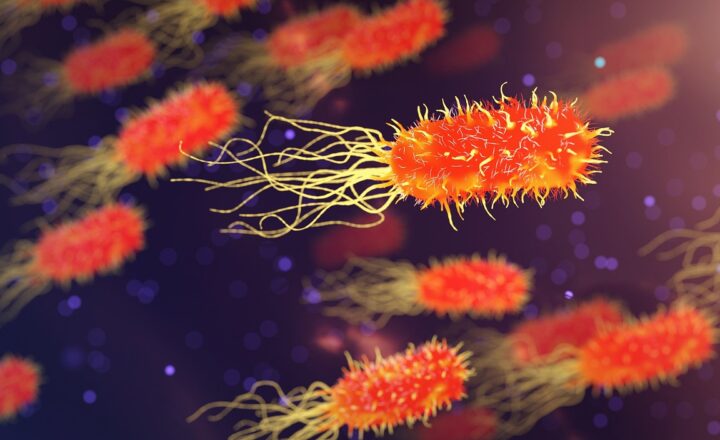How to Safely Transition Off Steroids Without Losing Your Gains
November 14, 2024

Steroid use, while effective for enhancing muscle mass and strength, can lead to severe long-term health issues and dependence. Transitioning off steroids is a critical step for anyone seeking to regain their natural hormonal balance while preserving the hard-earned gains from their cycle. In this guide, we’ll explore the best strategies to safely taper off steroids and maintain those results.
1. Understanding the Impact of Steroids
Before diving into the transition process, it’s essential to understand how steroids affect the body. Anabolic steroids can lead to:
- Hormonal Imbalance: Steroids increase testosterone levels, which can suppress natural production once usage stops.
- Loss of Muscle Mass: Abrupt cessation can lead to muscle loss if not managed properly.
- Psychological Effects: Mood swings, depression, and anxiety can occur during withdrawal.
A safe transition requires careful planning and consideration of these factors.
2. Consult with a Healthcare Professional
The first step in safely transitioning off steroids is to consult a healthcare professional or an endocrinologist familiar with anabolic steroids. They can provide guidance tailored to your situation, including:
- Managing Withdrawal Symptoms: Professional support can help manage psychological and physical withdrawal symptoms effectively.
- Blood Work: Regular blood tests can track hormonal levels and other health markers to ensure a safe transition.
- Post-Cycle Therapy (PCT): They can recommend a suitable PCT regimen to help restore natural testosterone production and maintain gains after ceasing steroids.
Professional advice is invaluable for a healthier transition and ensures you are on the right path.
3. Gradual Tapering Off Steroids
Going cold turkey on steroids can cause significant hormonal crash. Instead, a gradual tapering is recommended:
- Assess your current dosage of steroids and determine a tapering schedule. Reducing the dose gradually over several weeks can help ease the transition.
- For instance, if taking 500mg weekly, reduce to 400mg for a couple of weeks, then down to 300mg, and continue until you reach zero.
- Keep track of how your body reacts with each reduction and adjust accordingly, aiming to prioritize your well-being over rapid cessation.
This method provides the body more time to adjust and reduces the risk of severe side effects.
4. Implementing Post-Cycle Therapy (PCT)
Post-Cycle Therapy (PCT) is a critical aspect of transitioning off steroids. PCT involves taking medication or supplements designed to:
- Stimulate Hormonal Recovery: Helps kickstart natural testosterone production. Common PCT medications include Clomid or Nolvadex.
- Maintain Gains: Supplements like human chorionic gonadotropin (hCG) can mitigate muscle loss during recovery.
- Restore Mental Health: Many PCT aids help stabilize mood swings and reduce anxiety that can accompany steroid withdrawal.
PCT typically lasts between four to six weeks, depending on individual needs and steroid use history.
5. Optimize Nutrition and Training
Proper nutrition and training can help maintain gains post-cycle. Consider these strategies:
- Increase Protein Intake: Ensure sufficient protein to support muscle maintenance. Aim for a minimum of 1 to 1.5 grams of protein per kilogram of body weight.
- Focus on Balanced Macros: Adjust dietary macros to support energy levels and muscle recovery. Incorporate healthy fats and complex carbohydrates into your diet.
- Maintain an Intense Training Regimen: While you may experience fluctuating strength levels, continuing to train hard and incorporating progressive overload will help keep gains intact.
- Consider Supplements: Supplements like creatine and branched-chain amino acids (BCAAs) can support recovery and muscle preservation during this period.
A solid nutrition and training plan reduces the risk of muscle loss during your transition off steroids.
6. Monitor Your Progress
As you transition off steroids, continuous monitoring of your physical and mental health is crucial:
- Regular Check-Ins: Schedule follow-ups with your healthcare professional to monitor hormonal levels and adjust PCT if necessary.
- Keep a Training Log: Document your workouts to help track strength and performance changes. Adjust your workouts as needed to avoid overtraining or injury.
- Listen to Your Body: Pay attention to signs of fatigue, stress, or anxiety. Prioritize recovery and self-care during this adjustment phase.
Monitoring your body and mind during this sensitive time is a key factor in maintaining gains and achieving a successful transition.
7. Embrace Patience and Consistency
Transitioning off steroids is not an overnight process. It requires patience, consistency, and a commitment to maintaining a healthy lifestyle.
Competitors and bodybuilders need to accept that results may fluctuate during this time. Remember that:
- Your Body Needs Time: Hormonal restoration can take weeks or even months to normalize. Focus on maintaining your health and fitness rather than immediate results.
- Stay Committed: Approach your training and nutrition with the same level of dedication you had while on steroids. Consistency will yield results over time.
- Support Network: Surround yourself with supportive friends and fellow gym-goers who understand your journey and can motivate you during challenging times.
With the right mindset, you can transition off steroids healthily and effectively.
Conclusion
Transitioning off steroids is a significant step toward reclaiming your health and fitness sustainably. By following recommended practices such as gradual tapering, implementing PCT, optimizing nutrition, and maintaining a rigorous training regimen, you can preserve your gains and safeguard your well-being.
Approach this transition with patience and diligence, ensuring you listen to your body and seek help from healthcare professionals when needed. With time and consistency, you can confidently build a stronger foundation for a healthy, steroid-free life.







